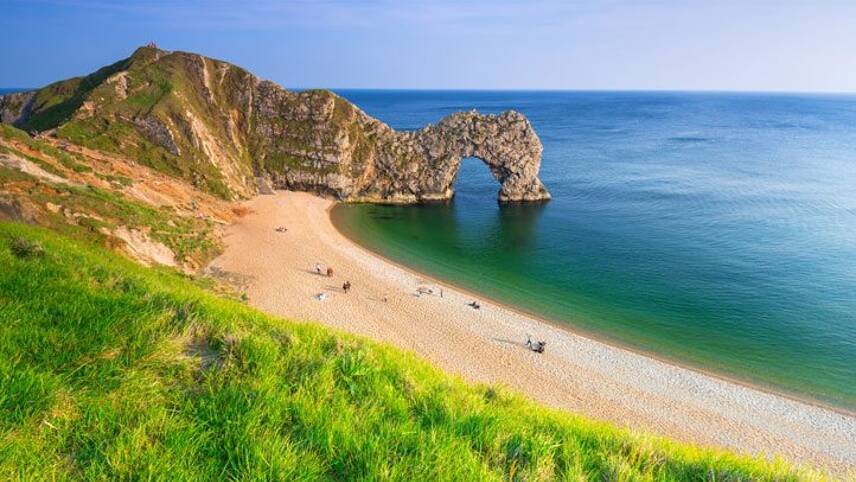Register for free and continue reading
Join our growing army of changemakers and get unlimited access to our premium content

Pictured: Durdle Door
The charities collaboratively developed the so-called ‘Marine Scorecard’ after Ministers declared 2021 to be the “marine super year” in January. This declaration was aligned with the UN dubbing the 2020s the ‘Ocean Decade’ and ‘Decade of Ecosystem Restoration’. With the UK having failed to deliver on previous ocean conservation and restoration promises, the scorecard will be completed later this year to give an updated snapshot of progress – or lack thereof.
A total of 17 metrics are detailed in the scorecard. Some concern broad, long-term policy frameworks, such as ensuring that legally binding targets on nature are added to the Environment Bill as Promised, and reforming offshore planning to ensure that the wind sector’s planned expansion does not negatively impact biodiversity.
Also re-iterated is the UK’s commitment to protecting at least 30% of land, which, the charities argue, should also be applied to fresh and saltwater habitats in line with plans being drawn up by the UN for the 15th Biodiversity COP.
While protected status has been broadened for marine habitats, NGOs believe that less than 1% of marine areas are properly protected. Previous WWF research has revealed that fully protecting one-third of UK seas could catalyse a £50bn boost for the economy and unlock 100,000 jobs.
Other scorecard metrics are more specific, covering issues including the monitoring of fishing vessels; species-specific regulations on bycatch; specific recovery projects and scaling up ‘blue carbon’. ‘Blue carbon’ projects are those which sequester carbon using nature-based solutions in marine habitats, such as seagrass and salt marshes.
The organisations contributing to the scorecard are Buglife, Greenpeace, Institute of Fisheries Management, Marine Conservation Society, Orca, RSPB, RSPCA, Surfers Against Sewage, Whale and Dolphin Conservation (WDC), The Wildlife Trusts, Wildfowl & Wetlands Trust (WWT) and WWF. All are Wildlife and Countryside Link members, and the Link is coordinating the scheme.
“In the UK, over half the environment we have is under the sea,” chair of the Link’s marine group Chris Tuckett said.
“Being an ocean nation, we must take care of the ocean so that it can continue to take care of us as the biggest regulator of climate change. As hosts of the G7 and COP26, the UK has the opportunity to truly make this a Marine Super Year by taking world-leading action at home and striking strong global deals for climate and nature.”
Climate and ocean
The link between the climate and nature crises is becoming ever clearer, thanks to improved scientific research in both fields and to growing public awareness. The 2018 report from the Intergovernmental Panel on Climate Change revealed that 2C of warming would be far worse for nature than 1.5C, with key habitats including coral reefs at acute risk.
But, as well as bearing the brunt of temperature increase and nature loss, marine habitats are well-equipped to serve as solutions.
More than 90% of the heat trapped by humanity’s greenhouse gas emissions has been absorbed by the seas, according to one 2019 study. But this is not sustainable in the long-run and could be contributing to issues such as acidification. The extent to which seas can combat heating and sequester carbon, with co-benefits to biodiversity, could be boosted with targeted action.
For example, it is estimated that if all the UK’s seagrass was restored, it could lock up about 3% of the country’s annual CO2 emissions. Seagrass grows more rapidly than forestry and is increasingly seen as a credible solution. More broadly, WWF has calculated that marine habitats can sequester up to 20 times more carbon per hectare than forests on land.
Sarah George


Please login or Register to leave a comment.